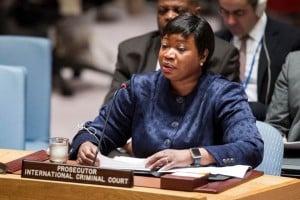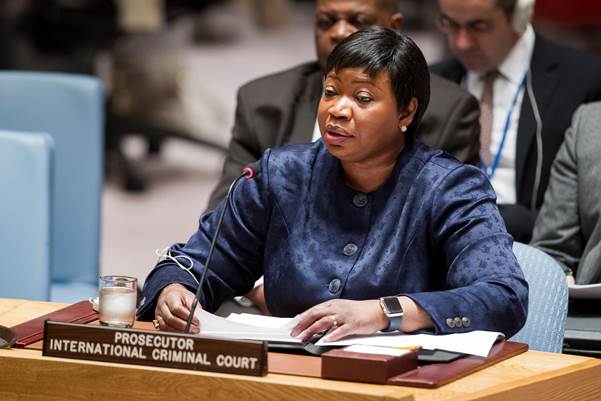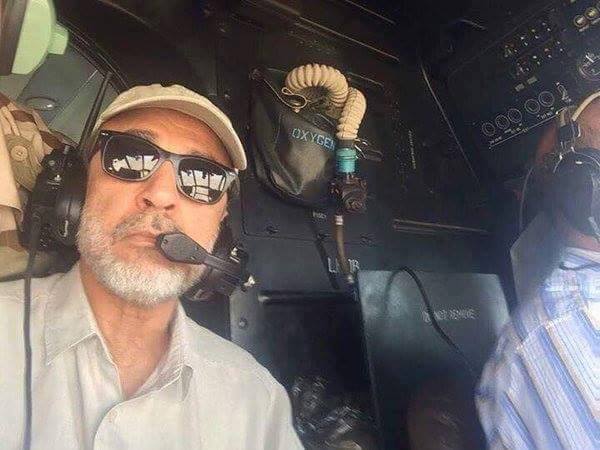By Hadi Fornaji.

Tripoli, 26 May 2016:
The International Criminal Court’s chief prosecutor may ask for UN sanctions against Saif Al-Islam’s Zintani jailer . . .[restrict]unless the late dictator’s heir is handed over to the court in the Hague to face war crimes charges
Fatou Bensouda, reporting today to the UN Security Council in New York said that she had recently filed a request with the ICC’s Pre-Trial chamber demanding that Al-Ajmal Al-Atiri, whom she described as the commander of the Zintani battalion holding Saif, hand over his prisoner immediately. The chamber had yet to respond but Bensouda said that she hoped that if Atiri failed to comply, the Security Council would “consider adopting appropriate measures to ensure compliance with the chamber’s order”.
The ICC originally issued warrants for the arrest of Muammar Qaddafi and his security chief Abdullah Senussi as well as Saif. Yet after Senussi was extradited from Mauritania to Libya, rather than the Hague in August 2011, the ICC’s Pre-Trial Chamber ruled that he would receive a fair trial in Libya. Last July Senussi, along with Saif, tried in absentia, and 35 other former regime figures were found guilty. Senussi and Saif were among those condemned to death.
The trial was condemned by UNSMIL, Human Rights Watch and Amnesty International as flawed, unfair and not transparent. “The trial did not meet international standards of fair trial in a number of ways,” said Claudio Cordone, UNSMIL’s Director of the Human Rights, Transitional Justice and Rule of Law.
Today however Bensouda told the UNSC that her office had received a copy of the judgement on Senussi and conducted a preliminary review. She explained “At this time, the office is not in possession of facts which would satisfy it that new facts have arisen which negate the basis on which [the Pre-Trial chamber] found Mr Al-Senussi’s case inadmissible”. She added that her office would continue to review its assessment if and when new facts became available.
Bensouda stressed the importance of an investigation both into crimes committed by the Qaddafi regime and since the Revolution. However she repeatedly claimed that the ICC’s investigations had been hindered by a lack of resources.
She went on nevertheless to say that, despite this and the precarious security situation, her office’s investigations were continuing to yield “positive results” even though enquiries were proceeding more slowly than she would have liked. Here, she referred to a 2013 Memorandum of Understanding which the ICC had signed with the Libyan Prosecutor’s office, which had provided the ICC with “numerous documents”. Bensouda did not however spell out any of the cases that were in hand.
She called on the Government of National Accord to devise effective plans and strategies to address atrocity crimes and back local investigators. She explained: “ This will demonstrate, in concrete terms, that justice and accountability constitute key Government priorities underpinning efforts to ensure peace and stability in Libya, and that the victims will have the opportunity to seek redress through the Libyan courts”. [/restrict]







